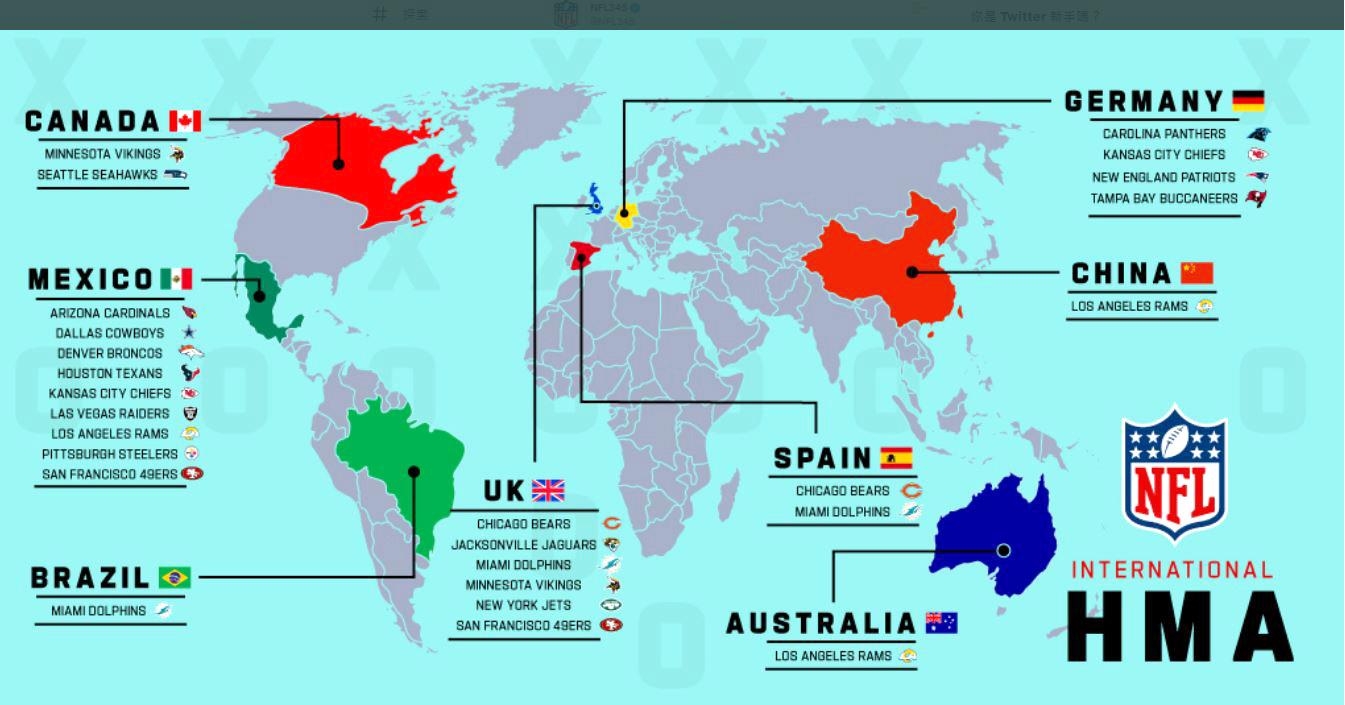US President Joe Biden on Friday signed into law a sweeping US$1.5 trillion spending bill, which includes a ban on the use of any maps by the US Department of State and its foreign operations that “inaccurately” depict Taiwan as part of China.
The Department of State, Foreign Operations and Related Programs Appropriations Act, 2022, stipulates that “none of the funds made available by this Act should be used to create, procure, or display any map that inaccurately depicts the territory and social and economic system of Taiwan and the islands or island groups administered by Taiwan authorities.”
The bipartisan Consolidated Appropriations Act, an omnibus spending bill, is to fund federal government agencies for the remainder of fiscal 2022 to avoid an immediate government shutdown. The US Senate on Thursday approved the bill 68-31 and sent it to the White House.

Photo: Screen grab from the National Football League Communications’ Twitter account
The appropriation act was proposed in July last year by lawmakers including Republican US representatives Tom Tiffany, Steve Chabot and Scott Perry, who are friendly to Taiwan.
The bill that same month passed the US House of Representatives by a 217-212 vote, but did not move beyond the Senate and was instead packaged into the omnibus spending bill following revisions.
The original bill had stipulated: “None of the funds made available by this Act may be used to create, procure, or display any map that depicts Taiwan, Kinmen, Matsu, Penghu, Wuciou [烏坵, islands administered by Kinmen County], Green Island (綠島) or Orchid Island [Lanyu, 蘭嶼] as part of the territory of the People’s Republic of China.”
Tiffany told the House that since the 1970s, the US has adopted a “one China” policy to accommodate Beijing’s claim that Taiwan is part of China.
However, he said “Beijing’s bogus argument that Taiwan is part of Communist China” should be abandoned, adding that the bill would “require honest maps that stop perpetuating the ‘one China’ lie.”
The Ministry of Foreign Affairs yesterday thanked the Biden administration and US lawmakers for supporting Taiwan-US relations.
The ban on inaccurate maps shows that the US “recognizes Taiwan as not being a part of China and is willing to take legislative action to ensure truthful depictions of the situation across the Taiwan Strait,” it said in a statement.
Legislative Speaker You Si-kun said on Facebook that the ban would prevent US taxpayer money being spent on maps that show Taiwan as a part of China and instead use the funds to support “honest maps.”
“Taiwan is not a part of China. We thank US lawmakers in the US Senate and House of Representatives for their nonpartisan support of Taiwan and look forward to the growth of Taiwan-US relations,” he wrote.
The 2,741-page Consolidated Appropriations Act would also provide US$13.6 billion in emergency aid to Ukrainian refugees fleeing the Russian invasion, as well as weapons to NATO’s eastern European members.
Senate Majority Leader Chuck Schumer said the aid would include US$1 billion in military assistance, such as Javelin and Stinger missiles, to cement the alliance’s military strength.
The financial assistance also aims to fend off cyberattacks from Russia, he added.
Additional reporting by Yang Cheng-yu and Chung Li-hua

CHAOS: Iranians took to the streets playing celebratory music after reports of Khamenei’s death on Saturday, while mourners also gathered in Tehran yesterday Iranian Supreme Leader Ayatollah Ali Khamenei was killed in a major attack on Iran launched by Israel and the US, throwing the future of the Islamic republic into doubt and raising the risk of regional instability. Iranian state television and the state-run IRNA news agency announced the 86-year-old’s death early yesterday. US President Donald Trump said it gave Iranians their “greatest chance” to “take back” their country. The announcements came after a joint US and Israeli aerial bombardment that targeted Iranian military and governmental sites. Trump said the “heavy and pinpoint bombing” would continue through the week or as long

TRUST: The KMT said it respected the US’ timing and considerations, and hoped it would continue to honor its commitments to helping Taiwan bolster its defenses and deterrence US President Donald Trump is delaying a multibillion-dollar arms sale to Taiwan to ensure his visit to Beijing is successful, a New York Times report said. The weapons sales package has stalled in the US Department of State, the report said, citing US officials it did not identify. The White House has told agencies not to push forward ahead of Trump’s meeting with Chinese President Xi Jinping (習近平), it said. The two last month held a phone call to discuss trade and geopolitical flashpoints ahead of the summit. Xi raised the Taiwan issue and urged the US to handle arms sales to

State-run CPC Corp, Taiwan (CPC, 台灣中油) yesterday said that it had confirmed on Saturday night with its liquefied natural gas (LNG) and crude oil suppliers that shipments are proceeding as scheduled and that domestic supplies remain unaffected. The CPC yesterday announced the gasoline and diesel prices will rise by NT$0.2 and NT$0.4 per liter, respectively, starting Monday, citing Middle East tensions and blizzards in the eastern United States. CPC also iterated it has been reducing the proportion of crude oil imports from the Middle East and diversifying its supply sources in the past few years in response to geopolitical risks, expanding

Pro-democracy media tycoon Jimmy Lai’s (黎智英) fraud conviction and prison sentence were yesterday overturned by a Hong Kong court, in a surprise legal decision that comes soon after Lai was jailed for 20 years on a separate national security charge. Judges Jeremy Poon (潘兆初), Anthea Pang (彭寶琴) and Derek Pang (彭偉昌) said in the judgement that they allowed the appeal from Lai, and another defendant in the case, to proceed, as a lower court judge had “erred.” “The Court of Appeal gave them leave to appeal against their conviction, allowed their appeals, quashed the convictions and set aside the sentences,” the judges